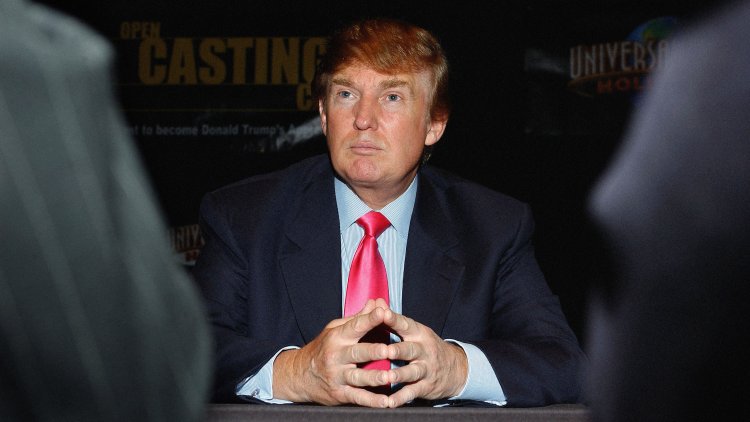Trump’s Smoking Gun Is a Dream That Will Never Die
It’s “reality,” rendered in scare quotes.

In 2018, Omarosa Manigault Newman turned a long-standing rumor into a piece of news: Donald Trump, she alleged, had used racist epithets on the set of The Apprentice. And the slurs, she claimed, had been caught on tape. Her claim led to a frenzy of speculation: Would the Apprentice recordings do what the Access Hollywood tapes had not? Would the show that had bolstered Trump’s rise in politics be, in the end, his undoing? What becomes of a public figure who has been caught, in such a literal way, saying the quiet part out loud?
The promised recordings never materialized, though, and so neither did the promised consequences. Without the evidence to back them up, Manigault Newman’s accusations languished in the space that divides the things that are known from the things that merely might be. Her claims took on the ironic distance of the genre that had bound her to Trump in the first place: Their dramas now came with asterisks. “Reality,” in their rendering, required scare quotes.
But lordy, many still hoped there’d be tapes. And this week—on the same day, as it happened, that a Manhattan jury turned Donald Trump, the alleged felon, into Donald Trump, the convicted one—the specter of recordings was raised again, this time as part of a Slate essay written by the former Apprentice producer Bill Pruitt. “The Donald Trump I Saw on The Apprentice” is long, thoughtful, and detailed. It offers new stories to support the old idea that Trump’s most powerful enablers, as he launched his bid for the presidency, were not politicians but entertainers: the behind-the-scenes workers who took a failing businessman and edited him, frame by soft-lit frame, into competence. Pruitt is sharing those stories now, he writes, because he can: The nondisclosure agreement he signed to join the show—-a document whose restrictions lasted for 20 years—recently expired. The essay reflects his catharsis. But it is sober too—akin, in that way, to the many other essays written by former Trump aides who indulged his truthful hyperbole before realizing the depth of the lie. Pruitt’s essay is openly confessional. It is implicitly apologetic. Its revelations read, in moments, as pleas for forgiveness: journalism as an act of atonement.
[Adam Serwer: Did the media learn nothing from 2016?]
The tapes—or more specifically, the spectral versions of them—come several paragraphs into Pruitt’s story, as he relates a discussion Trump had with Apprentice producers about whether a high-performing Black contestant, Kwame Jackson, should be named the season’s victor: “‘Yeah,’ [Trump] says to no one in particular, ‘but, I mean, would America buy a n— winning?’”
Pruitt’s allegation echoes the one that Manigault Newman made in 2018. And it is similarly difficult to verify. (“Those tapes, I’ve come to believe, will never be found,” Pruitt writes.) Pruitt has effectively given readers Schrödinger’s slur: a word at once uttered and not, a piece of proof and a defiance of it—news that is, at this point, no news at all. Trump might have said it. Or Pruitt’s allegation might be, as a Trump-campaign spokesperson put it yesterday, “fabricated and bullshit.”
But all of the things that the claim is not, at the moment, also highlight what it could be: an opportunity. The tapes, failing to give helpful answers, might instead offer helpful questions. Among them: What would such tapes, if they’re ever found, actually reveal? What could they, really? (Why would Trump be exempt from the truism that actions speak louder than words?) Trump has treated racism as a campaign message and a marketing ploy. He keeps finding new ways to insist that some Americans are more American than others. Epithets, for him, are a way of life. What could words convey that his actions haven’t? What, precisely, remains to be proved?
[David A. Graham: Trump goes all in on racism]
In 2018, in response to Manigault Newman’s claim, the Atlantic writer Matt Thompson considered what would happen—and what wouldn’t—if the rumored tapes materialized. The answer, he suggested, would have very little to do with Trump, and very much to do with everyone else. Six years later, that insight looks ever more prescient—and ever more urgent. Trump himself is a smoking gun. He has been there all along, strutting on stages and slumping in courtrooms and making his plans to restore the country to his particular version of greatness. He has shown us who he is. Why is it so hard to believe him?
What's Your Reaction?




















